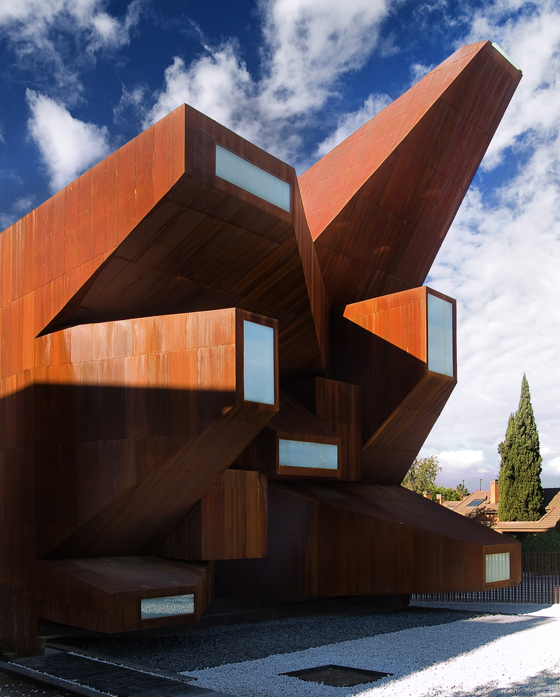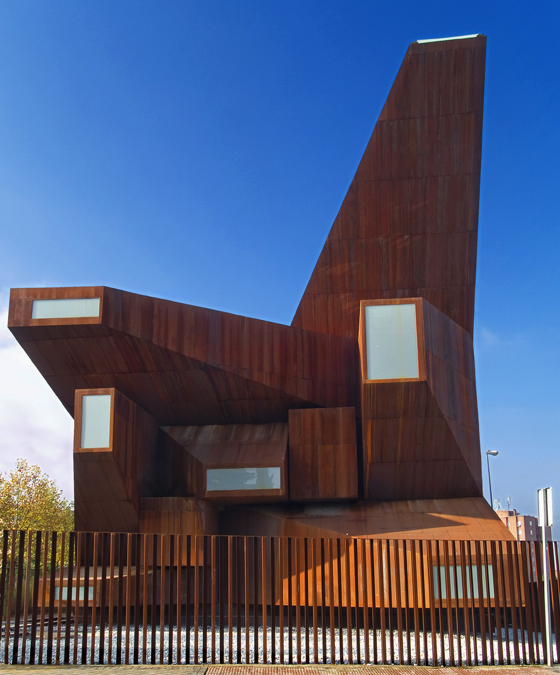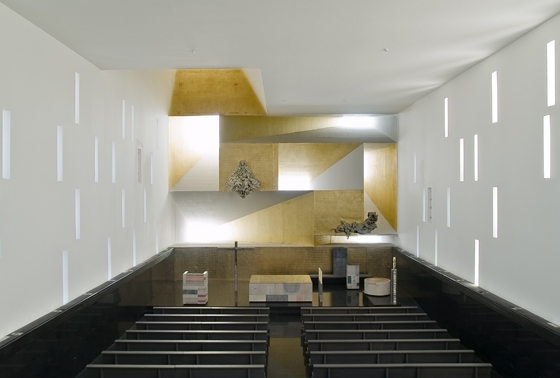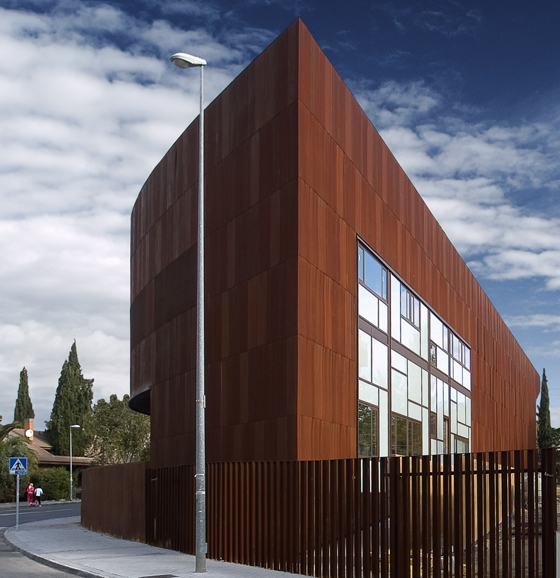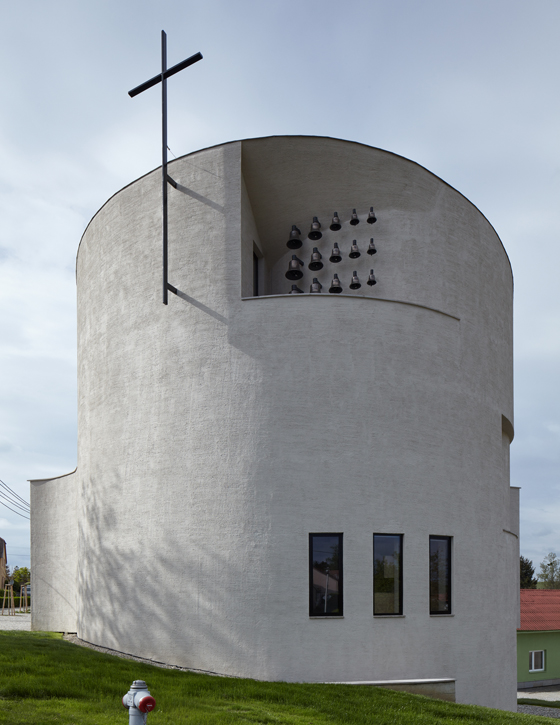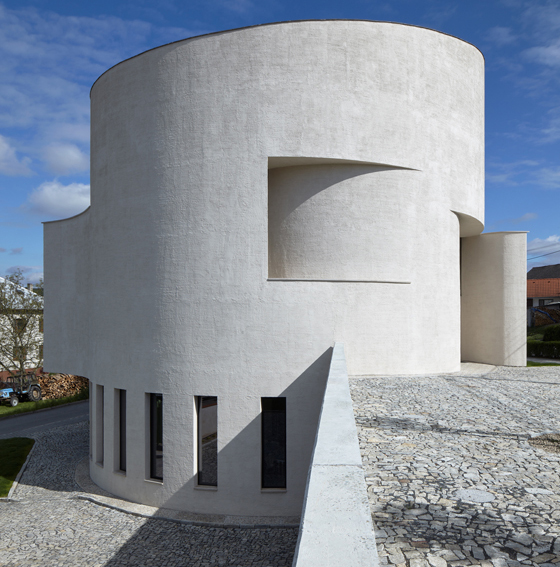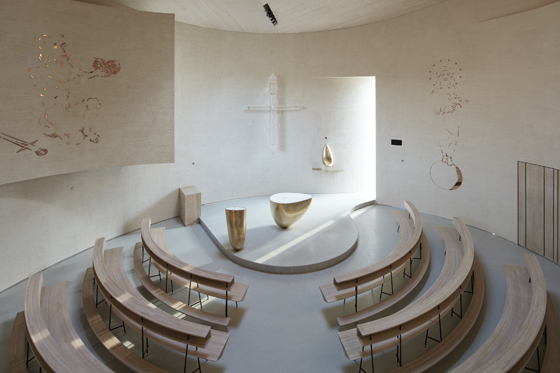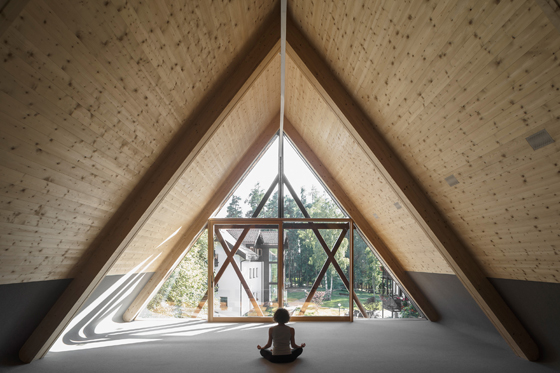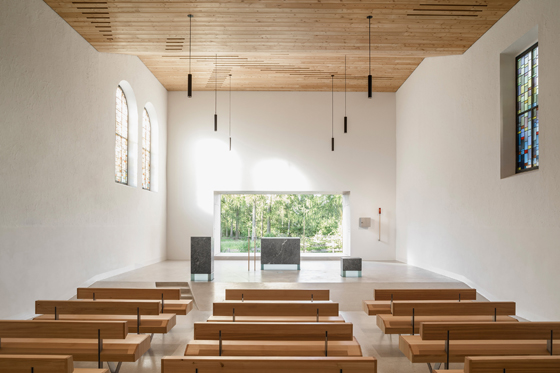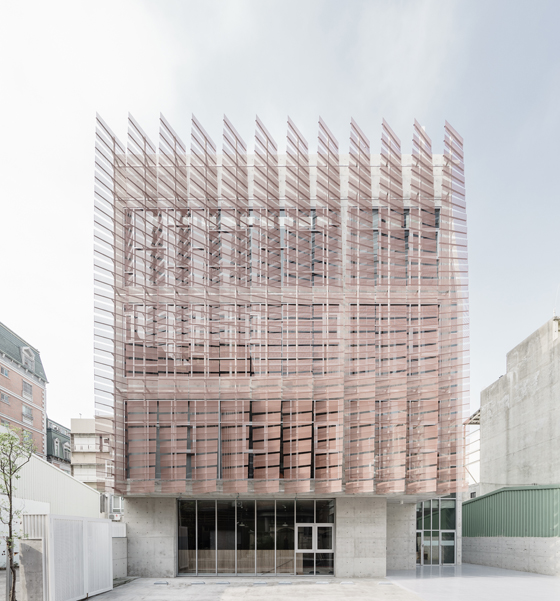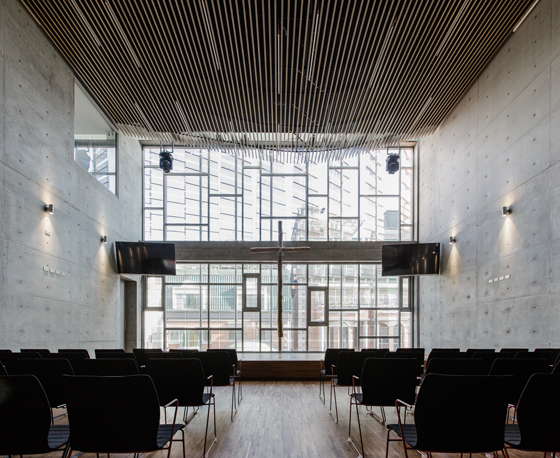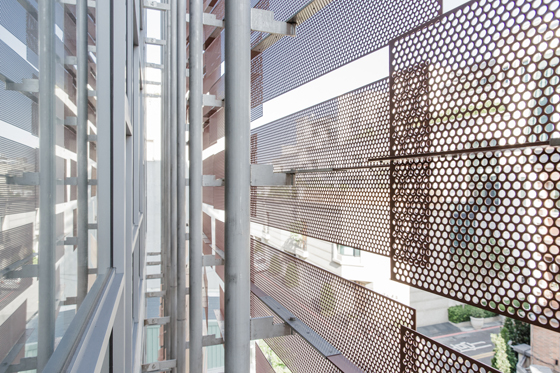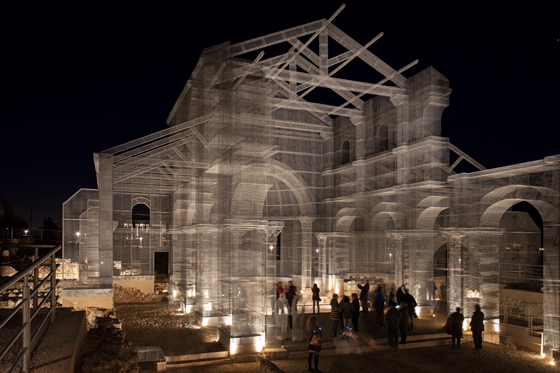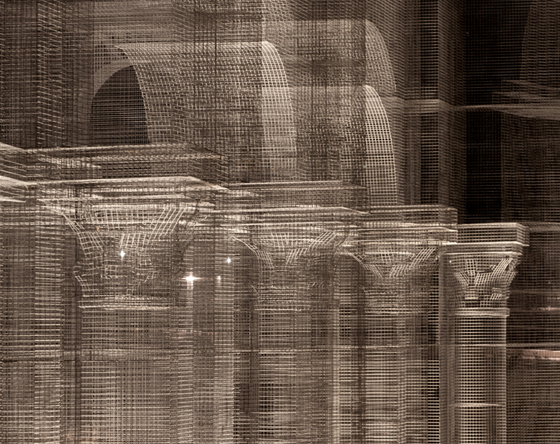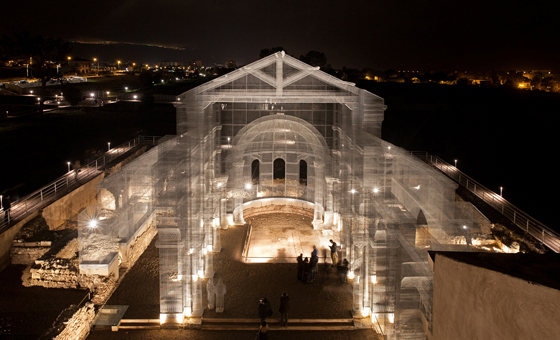Sacred Stuff: 5 materially expressive churches
Texto por Madeline Bouton
Berlin, Alemania
15.09.17
From wire to weathering steel, unorthodox materials lend these churches inspiration, at least when it comes to volume and form.
PARISH CHURCH OF SANTA MONICA | vicens + ramos
This church, just 15 km outside Madrid, takes on a curving, arrow-like form in order to maximally occupy its long, narrow plot. At the south end, its vertical edge widens into the main altar room at the north, lit by a mosaic of skylights. On the church’s exterior, these skylights appear as an explosion of graphic lines, rectangles and trapezoids, which the architects sheathed in weathering steel.
CHURCH OF ST. WENCESLAS | atelier štĕpán
Based on Romanesque rotundas, this concrete church in Sazovice, Czech Republic finds inspiration in its endless form. “When you observe the volume, you feel the lightness made by the design principle of tapering the walls into tiny lines. It’s like cutting a paper cylinder and exploring its possibilities,” explains architect Marek Jan Štěpán. “I created the windows by pushing and pulling the cuts and letting the light glide softly on the walls.”
SAINT JOSEPH IN THE WOODS | messner architects
Messner Architects converted this church in Bolzano, Italy via two architectural interventions: breaking through the east facade to bring daylight to the presbytery and opening the gable to the small piazza below. Timber lining punctuates these interventions and marks spatial transitions between interior and exterior, quietly returning attention to the church’s alpine surroundings.
TAINAN TUNG-MEN HOLINESS CHURCH | mayu architects+
A grid of copper-toned, perforated aluminum screens or “feathers” distinguishes the facade of this church in Tainan, Taiwan from neighboring residential buildings. “The orientation of every feather is calculated by the Fibonacci sequence and it is varied by increments of two degrees from feather to feather. Thus, the main church facade appears to be soft, transparent and flowing,” explain the architects.
BASILICA OF SIPONTO | eduardo tresoldi
Abandoned after earthquakes in the 13th century, an early Christian basilica in Puglia, Italy is now part of an archaeological site. There, the artist Edoardo Tresoldi has given the basilica another life in wire. Transmitted through volume and light, wire’s material language unearths new lines of communication between the ancient and contemporary on the grounds of this phantom church.
© Architonic
